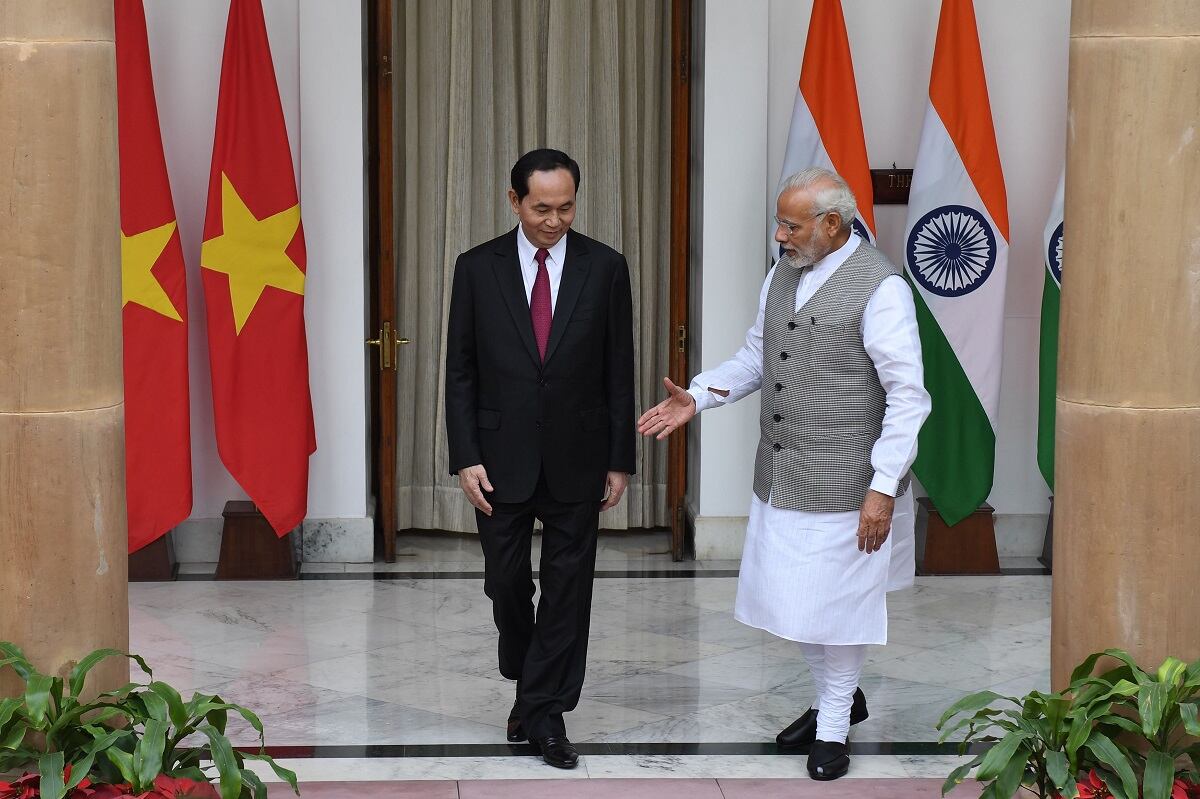NATIONAL HARBOR — Sri Lanka, an island nation in the Indian Ocean the size of West Virginia, has become another flashpoint in regional naval competition.
That’s because in December, Sri Lanka turned over the strategic port in the southern city of Hambantota to a Chinese company on a 99-year lease. The deal, which allowed the country of 20 million to lessen its debts to China, marked another toehold for Beijing in the heart of the Indian Ocean.
The Sri Lankan government officially sold an 80 percent stake in the Hambantota port to a Chinese state-owned company on Dec. 9 after falling behind in repaying $1.5 billion borrowed from Beijing to build it. That prompted complaints the deal was too favorable to Beijing and fueled concerns about Sri Lanka’s soveignty.
The port is expected to play a key role in China’s Belt and Road initiative, which will link ports and roads between China and Europe. It’s been touted in the Chinese press as attracting further foreign investment and launching factories.
India, considered a rival with China, has reacted to the deal with suspicion, prompting Sri Lankan officials to repeatedly offer assurances the port will not be used by the Chinese military.
On Monday at the sprawling Sea-Air-Space Expo outside Washington, D.C., the naval attaché of the Sri Lankan Embassy in the United States, Rear Admiral Dharmendra Wettewa, repeated the assurances his government has made to India, that there would be no foreign military activity at Hambantota.
“We have to walk the talk,” he said, adding that, “The Sri Lankan government needs to be as transparent as possible... You will see that happening.”
Under the administration of President Mahinda Rajapaksa, since voted out in 2015, Sri Lanka extended billions of dollars in loans for mega infrastructure projects. But the Chinese investment has fueled protests and police clashes, over what critics see as Beijing’s excessive demands and unfavorable financing.
Wettewa said on the panel about international maritime cooperation, beside U.S., Australian and Italian naval officials, that his country has no definitive military agreement with China, but there is a commercial relationship.
Sri Lanka has no special military relationship with any country, he added, but has strong lateral partnerships with India, Pakistan, Japan, Australia and the United States.
On the commercial side, China has made a lot of investment in Sri Lanka, Wettewa acknowledged.
RELATED

In late February, The Sri Lankan chief of defense staff, Adm. Ravindra Wijegunaratne, reportedly assured India that the Hambantota for would not be given to any foreign navy. He reportedly made the remarks at an Indo-Pacific Regional Dialogue, in the presence of Indian Defence Minister Nirmala Sitharaman.
“There had been this widespread claim about the port being earmarked to be used as a military base,” Wijegunaratne is reported to have said. “I can assure you in this forum that no action, whatsoever will be taken in our harbour or in our waters that jeopardises India’s security concerns.”
The comments came a month after Sitharaman publicly raised doubts about whether that China would confine itself only to port activities.
“Whether China will confine itself to only port activities in Hambantota port is a question,” The Hindu newspaper quoted her as saying, “and I do not want to say anything further.”
The Associated Press contributed to this report.
Joe Gould was the senior Pentagon reporter for Defense News, covering the intersection of national security policy, politics and the defense industry. He had previously served as Congress reporter.








